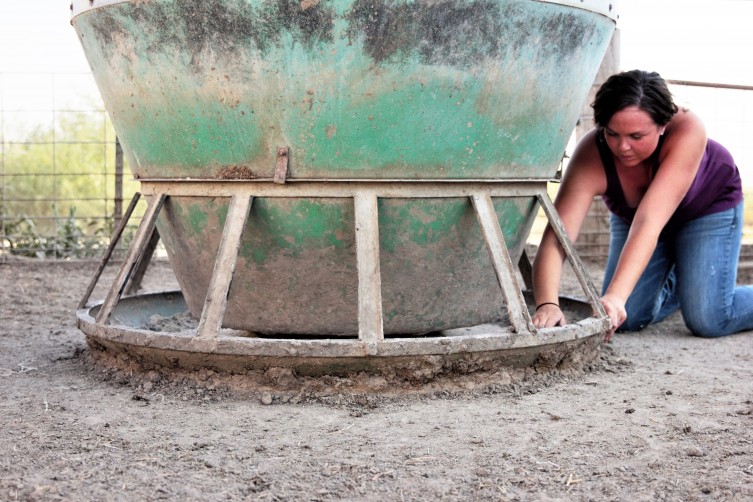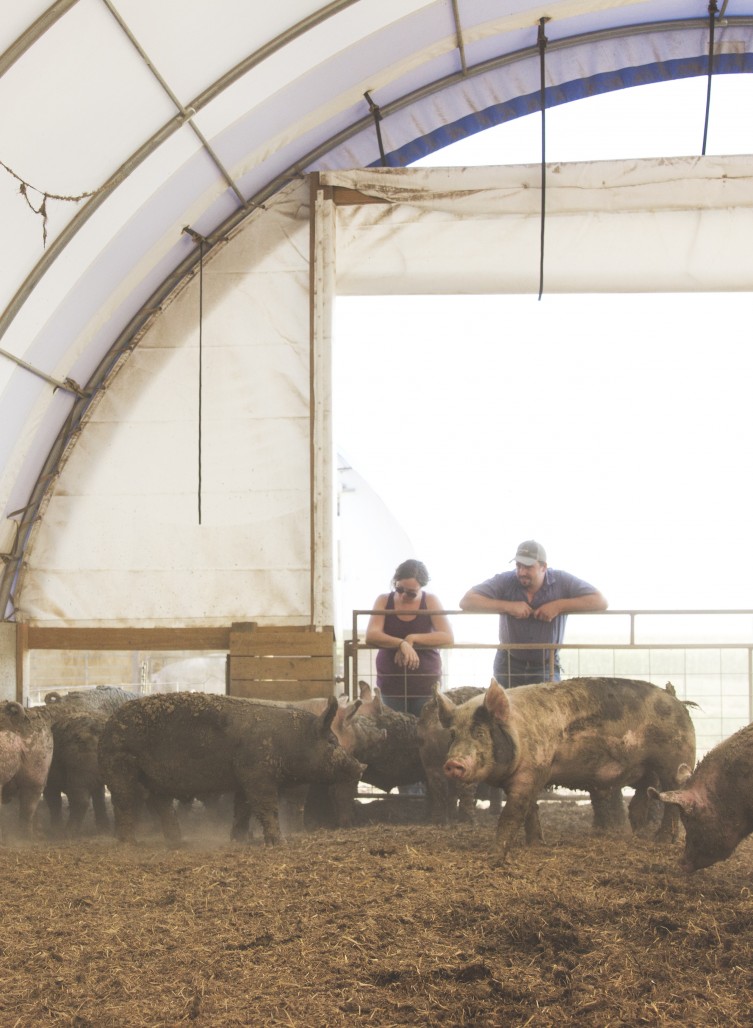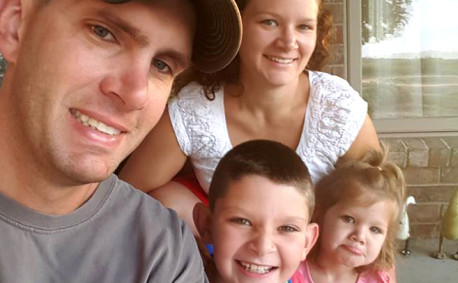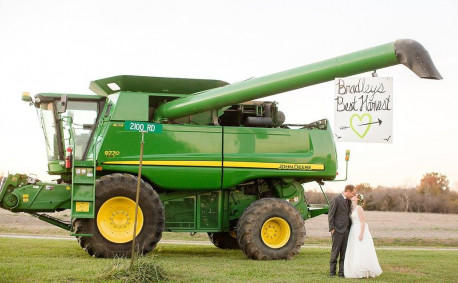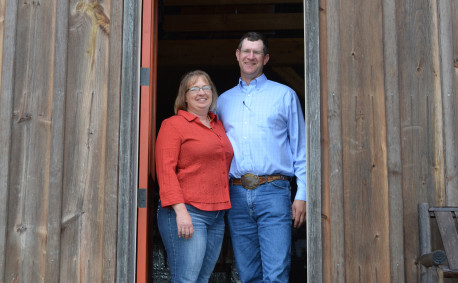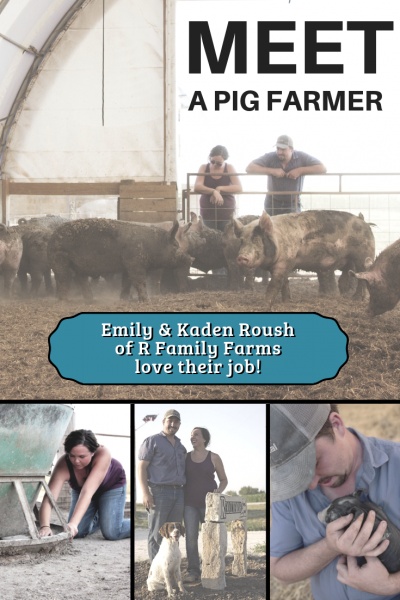Why the Roushes Raise Heritage Hogs
In the middle of the country (seriously, smack dab in the middle, at the geographic center of the contiguous United States), you’ll find a young couple full of energy and passion raising Berkshire hogs.
Who is the couple? Emily and Kaden Roush of Lebanon.
And, what’s a Berkshire hog? It’s a heritage breed that yields a particularly flavorful pork so red, some people mistake it for beef. There’s a scientific reason Berkshire pork has such a robust flavor—its pH levels. Berkshire pork has a lower acidity than most other types of pork, making it more tender and juicy.
How did they come together? That’s the story of R Family Farms.
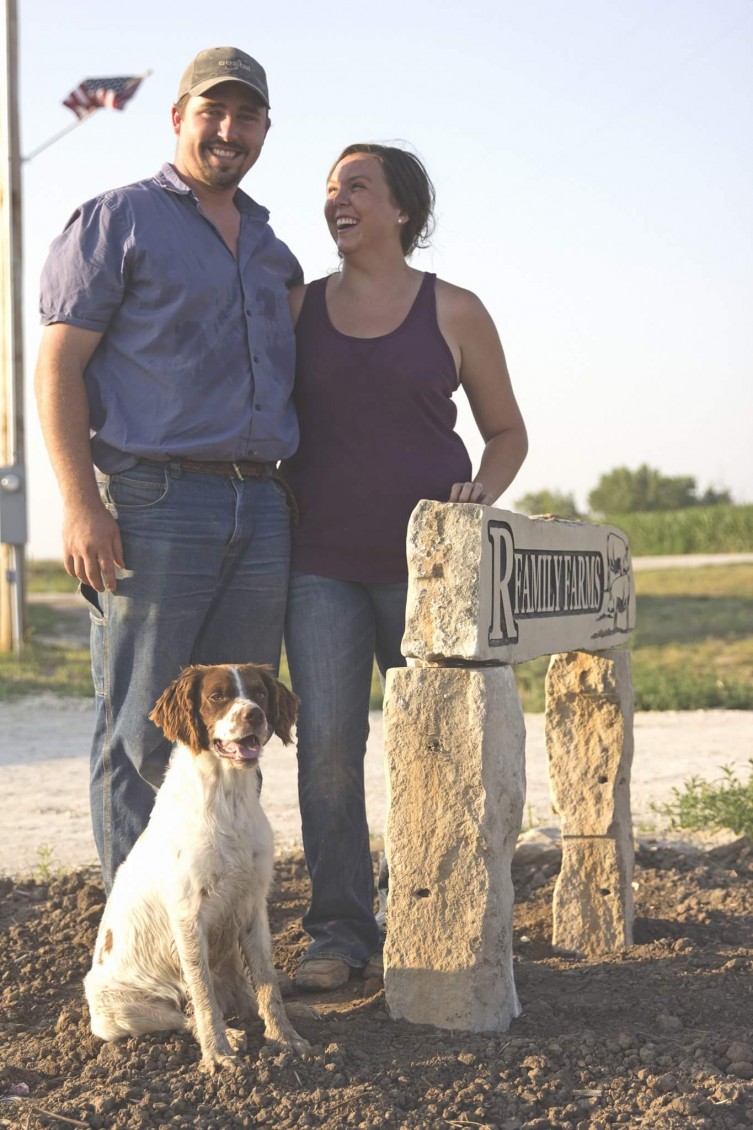 Emily and Kaden both hail from farming families.
Emily and Kaden both hail from farming families.
“I’ve always been a farm girl,” Emily says. “I grew up on a crop farm and my life’s plan after I got done with college was to go back home and help my dad farm.”
Then Kaden entered the picture. Like the Berkshire pork they sell, their relationship is a matter of chemistry. They first met in a science lab in community college and their relationship developed over time.
Kaden’s family farm always had pigs on it. When the hog market crashed in the 1990s, the farm suffered. But Kaden’s love of pigs didn’t. He started showing hogs in 4-H, partnering with his brother to sell them to other kids who wanted to show.
Kaden and Emily always knew farming would be part of their lives. Deciding to raise Berkshire pigs in an outdoor setting was a strategic business decision they made very carefully.
In the swine industry, a single hog only yields about $5 of profit. To see any sort of return on investment, most producers have to operate at a large scale, but Emily and Kaden wanted to operate on a smaller scale. Therefore, they knew they had to take a different approach and distinguish themselves in the marketplace. They decided to develop a niche with Berkshire pigs.
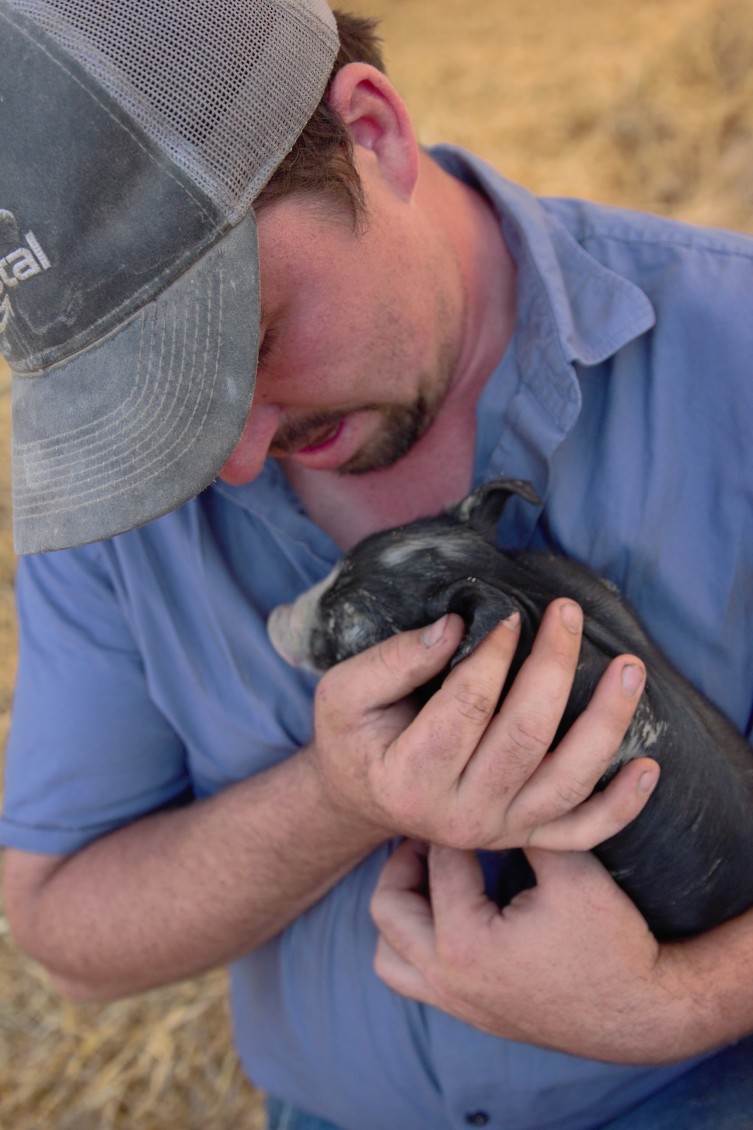 When they married in 2015, they also broke ground on R Family Farms.
When they married in 2015, they also broke ground on R Family Farms.
“This is what we love to do. It’s a feeling of carrying on a legacy. It’s what our grandparents did. It’s what our great-grandparents did. It’s a distillation of the legacy of love and the land,” Emily says.
But running a pig farm isn’t easy.
“Pig farming is 365 days a year,” Emily says. “It doesn’t matter if it’s snowing, raining, 20 below or 110 degrees, you’re out there making sure the pigs are fed and taken care of. You put their comfort ahead of your own.”
“We’ve pulled a lot of late hours,” Kaden adds. “But this passion has been ingrained in us from our upbringing—the passion of caring for the environment, the livestock, the land.”
Like so many farmers we’ve spoken with, Emily and Kaden often feel like they are up against a lot of misperceptions about farmers and farming.
“Too many people think farmers are out there for the money—not true,” Emily says. “They love what they do. They’re putting just as much care and research into what they do as you would when taking care of a pet or your family.”
Kaden gets angry when he sees pork labels at the grocery that say “hormone free.” The labels are misleading gimmicks, he says. Federal law prohibits use of hormones in production.
Another myth they hear a lot is that farming isn’t sustainable.
Basically everything they use on the farm gets used again in some fashion. Take the straw and corn stalks they use for the pigs’ bedding. When they clean out the pens, they compost the material, then use it to fertilize their fields, where they grow grain to feed the pigs.
“It’s a full life cycle. We’re not putting anything to waste,” Emily says.
A lot of the misperceptions can be cleared up by directly connecting with consumers. After all, no one knows how food production works better than the person producing the food. That’s why Emily and Kaden make an effort to connect with their customers. They participate in farmers markets and community supported agriculture (CSA), retail their own label in select groceries and sell their pork online.
“We really enjoy connecting with the people who eat our pork,” Kaden said. “All in all, we’re like them, we just raise animals for a living.”
If you’d like to connect with Emily and Kaden and learn more about their operation, check out their website and follow them on social media:
Since this article was published, Emily and Kaden have experienced a lot of changes: two children and a local market. What hasn't changed is their commitment to their hogs, each other and their community.
More About
- Where They Live: Lebanon, in Smith County, about 100 miles north and east of Hays
- What They Do: Hog farmers (Kaden is a loan officer by day when Emily runs the farm. Emily also does graphic design. Many family farms rely on off-farm income.)
- Favorite Thing About Kansas
- Emily: “I love the differences you find across the state. There are so many different landscapes, so many different people. You have a lot of very respected cities. You also have a small-town feeling.”
- Kaden: “It’s a simpler way of life. Everybody knows everybody. Everybody’s your friend. Everybody cares. If there’s ever a problem, you have a whole community behind you.”
- Favorite Foods
- Emily: “I like food in general!”
- Kaden: “Can craft beer be on that list?”
- Hobbies
- Emily: “I enjoy doing graphic design, but I do it a lot for the farm, so I don’t necessarily consider it a hobby!”
- Kaden: “I like hunting. Our area of the state has a pretty good pheasant and quail population. From mid-November to January, you’ll probably find me and the dogs out walking the fields.”

